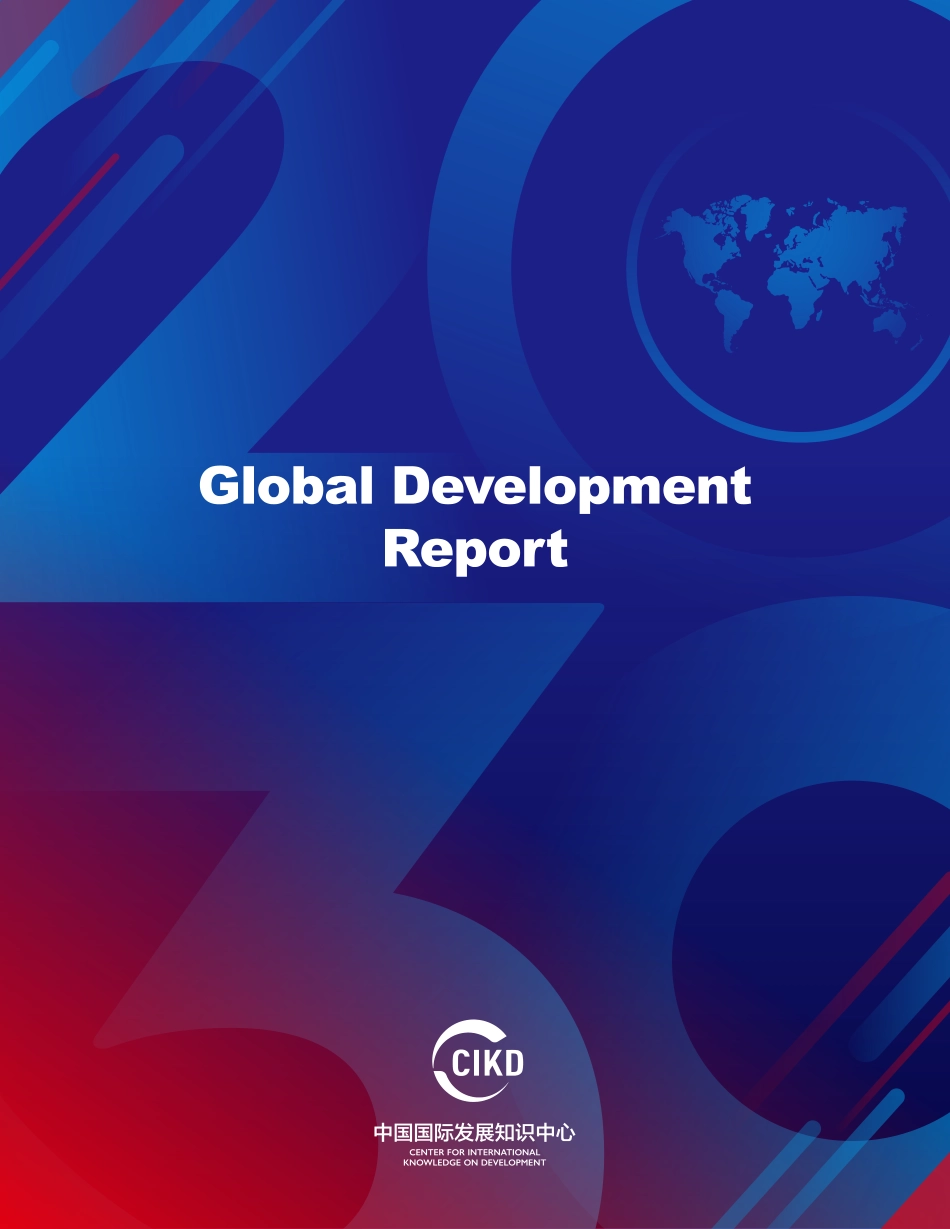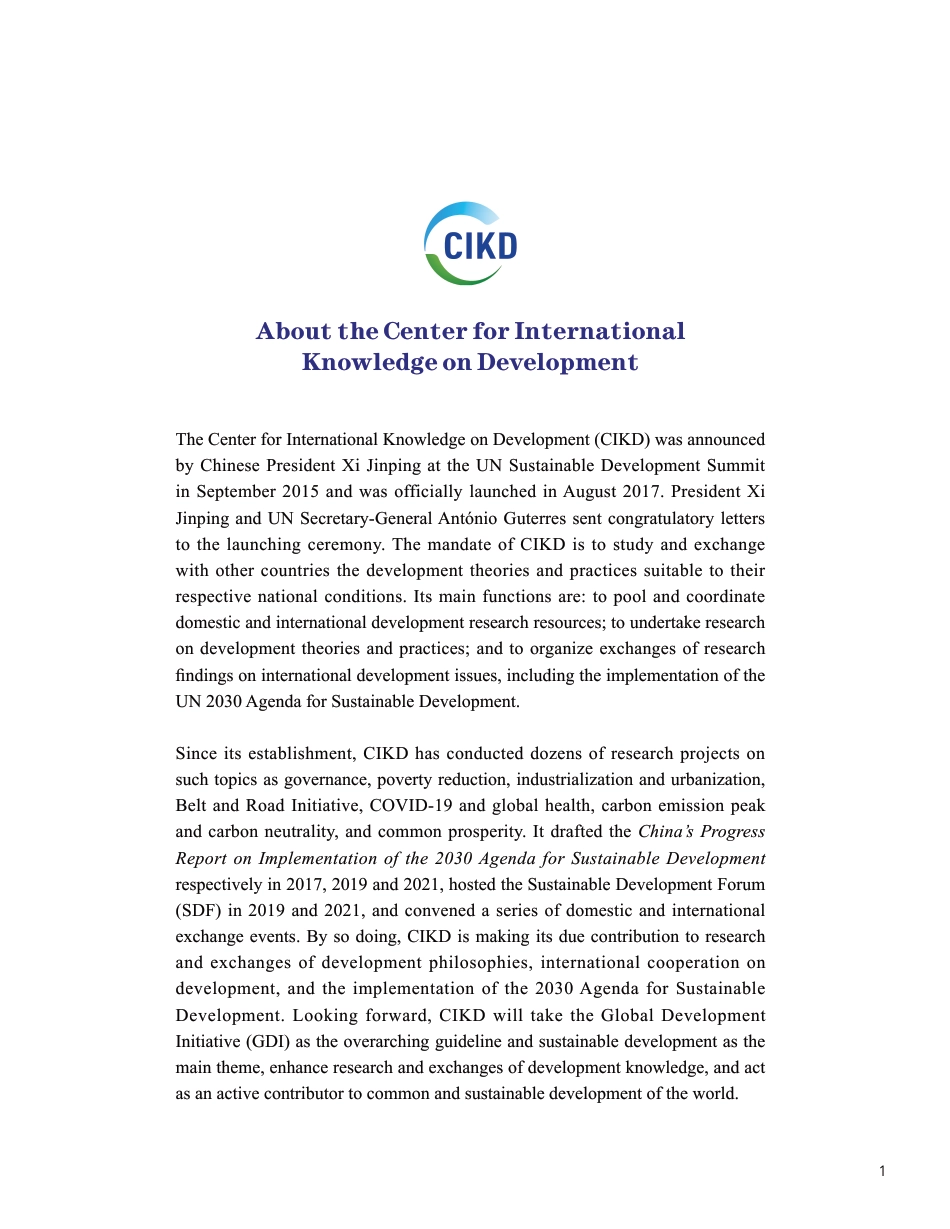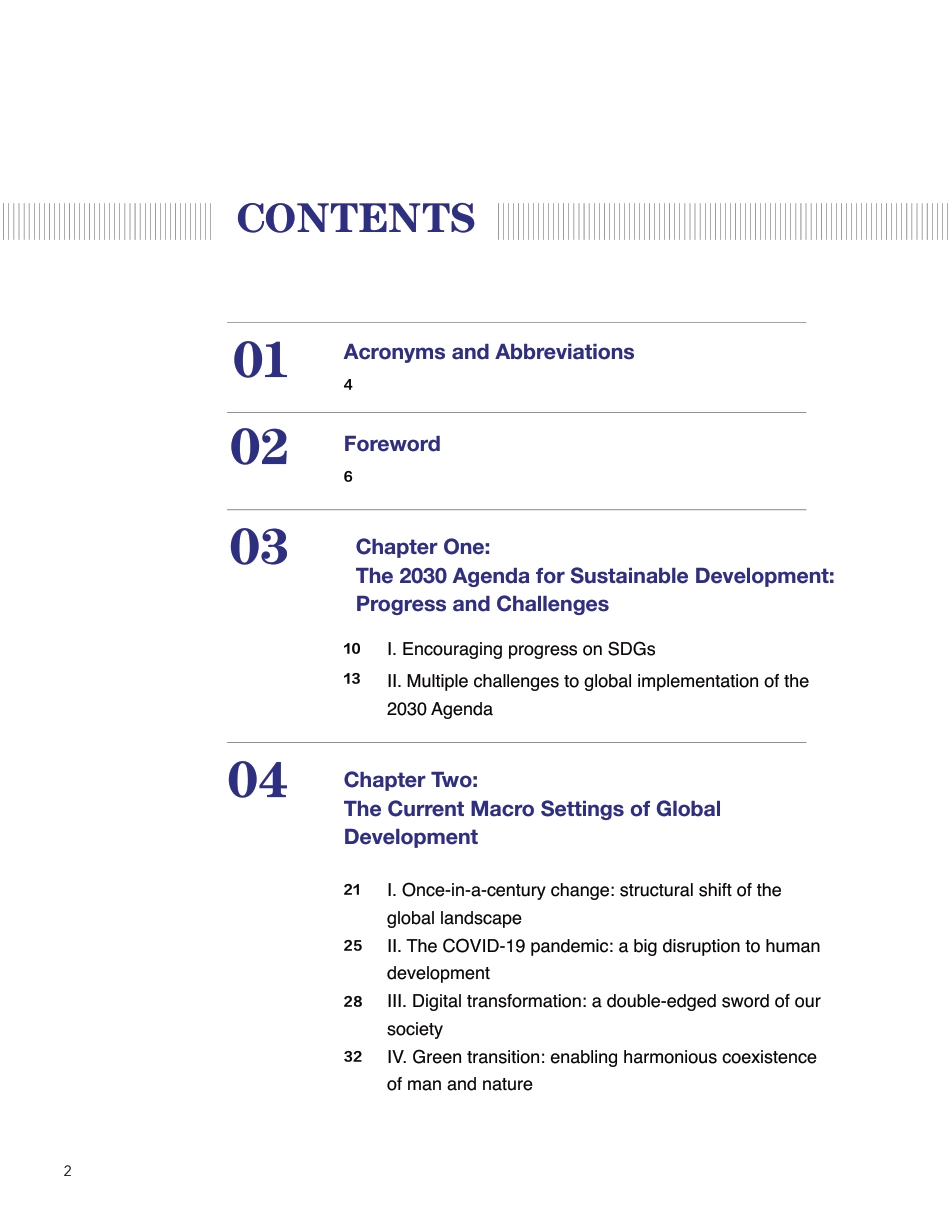1The Center for International Knowledge on Development (CIKD) was announced by Chinese President Xi Jinping at the UN Sustainable Development Summit in September 2015 and was officially launched in August 2017. President Xi Jinping and UN Secretary-General António Guterres sent congratulatory letters to the launching ceremony. The mandate of CIKD is to study and exchange with other countries the development theories and practices suitable to their respective national conditions. Its main functions are: to pool and coordinate domestic and international development research resources; to undertake research on development theories and practices; and to organize exchanges of research findings on international development issues, including the implementation of the UN 2030 Agenda for Sustainable Development.Since its establishment, CIKD has conducted dozens of research projects on such topics as governance, poverty reduction, industrialization and urbanization, Belt and Road Initiative, COVID-19 and global health, carbon emission peak and carbon neutrality, and common prosperity. It drafted the China’s Progress Report on Implementation of the 2030 Agenda for Sustainable Development respectively in 2017, 2019 and 2021, hosted the Sustainable Development Forum (SDF) in 2019 and 2021, and convened a series of domestic and international exchange events. By so doing, CIKD is making its due contribution to research and exchanges of development philosophies, international cooperation on development, and the implementation of the 2030 Agenda for Sustainable Development. Looking forward, CIKD will take the Global Development Initiative (GDI) as the overarching guideline and sustainable development as the main theme, enhance research and...



